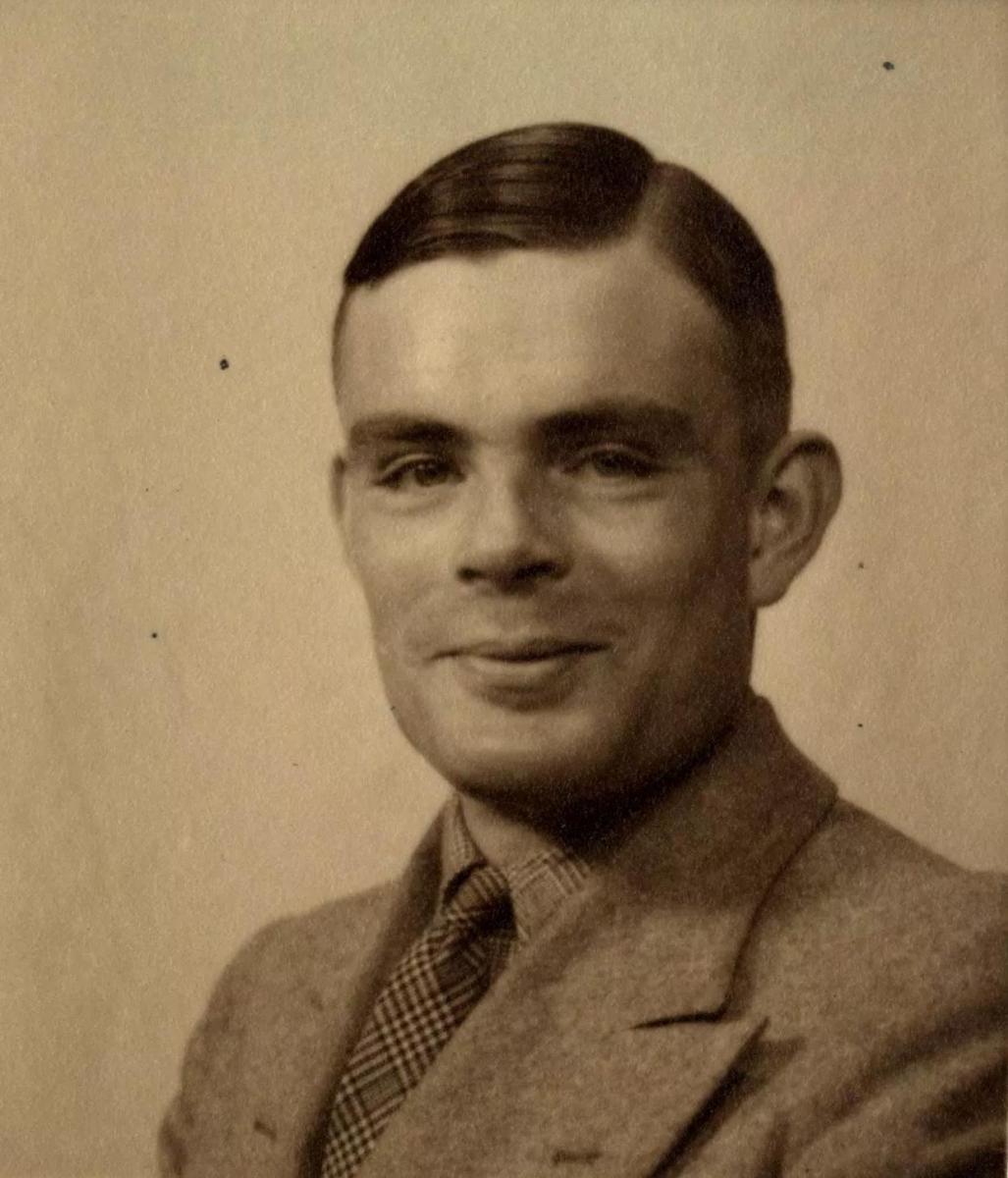About Alan Turing
 Alan Mathison Turing was born on 23 June 1912, the son of Julius Mathison Turing, a civil servant in India, and (Ethel) Sara Turing, the daughter of Edward Waller Stoney, chief engineer of the Madras and Southern Mahratta Railway.
Alan Mathison Turing was born on 23 June 1912, the son of Julius Mathison Turing, a civil servant in India, and (Ethel) Sara Turing, the daughter of Edward Waller Stoney, chief engineer of the Madras and Southern Mahratta Railway.
Alan's early life was spent with his brother John, living with the Ward family at St Leonards-on-Sea (near Hastings); his parents visited from India when they could. Alan was educated at Hazelhurst School, then Sherborne School. He won an Open Scholarship in Mathematics to King's College and matriculated in 1931.
He graduated in 1934 with distinction, and was awarded a Fellowship in 1935. This was followed by two years as a Visiting Fellow at Princeton; in 1936 the draft of his paper 'On Computable Numbers' was completed. Alan returned to King's in 1938 with his PhD. When war broke out he joined the Government Code and Cypher School at Bletchley Park, Buckinghamshire, where he was part of the team deciphering the Enigma machine. He was awarded an OBE in 1946 for his work.
After the War, Alan worked first at the National Physical Laboratory and then at Manchester University on the development of the computer from his first ideas in the early 1930s for a 'Turing machine'. He was elected a Fellow of the Royal Society in 1951. In the early 1950s he was developing a theory of morphogenesis, a mathematical theory of organic growth. The work was left incomplete when he died, on 8 June 1954, at his house in Wilmslow, Cheshire.
Click here for some notable quotes by Alan Turing.